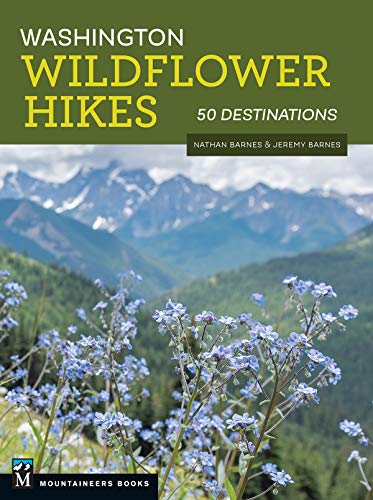Raging River
Follow this route to explore this seldom visited section of the Tiger Mountain State Forest.
Total Distance: 9.0 miles
Total Ascent: 1200ft
Highest Point: 1800ft
Total Ascent: 1200ft
Highest Point: 1800ft
To get to East Tiger, take I-90 to Exit 25 Highway 18 junction. Take Highway 18 south for 1.5 miles to the Raging River Bridge. Cross the bridge and almost immediately take a right onto a blue-gated road. This unsigned area is the Raging River Trailhead and has enough room for about four cars. View Google Directions >>
Note: while the majority of our hike was on trails, a washout at Deep Creek required a log crossing and some bushwhacking to get back to the trail. This section of the hike should be approached with caution.
From the trailhead, the Raging River Trail leads into a clearing carved into the forest for the power lines crackling overhead. Here you can head right and take the short side trail down to the Raging River and walk under the bridge to the riverside. Across the water, you'll see a trail that heads up through the Raging River Forest and eventually connects with the Rattlesnake Mountain Trail - but currently, there's no easy way to cross the river and access the trail. So, after you’ve checked out the river, head back to the main trail and follow it a few tenths of a mile to Deep Creek. Along the way you’ll pass side trails snaking off into the woods. Avoid these, as they usually lead to private property.
Once you reach the washout at Deep Creek, follow a boot path down to the water and carefully make your way across the creek on a fallen log. Once across, find a faint path leading up into the forest, through some bramble and eventually back to the Raging River Trail under the power lines. Push up to the top of the rise to connect with the East Tiger Road 7000 (variously labeled on different maps as Road 7500, Road 7000 and Highway 18 Powerline). From here you have a choice. You can head left following the power lines to the Tiger Summit Trailhead, or head right deeper into the forest.
We recommend you head right and follow the East Tiger Road two miles to the Preston Railroad Trail. Along the way you will pass junctions for the Northwest Timber Trail and the Silent Swamp Trail. Skip the Northwest Timber Trail as it just heads out to the Tiger Summit Trailhead, but when the Silent Swamp Trail re-opens after trail construction is complete, it will be possible to make a short loop by following it up to the main road and then following it back down to the East Tiger Road. Once you reach the Preston Railroad Trail, you can follow it up to the summit of East Tiger and all its radio tower glory.
We don’t recommend this hike for everyone. This is more for those folks that have a sense of adventure and don’t mind a little bushwhacking and route finding. This is also a decent choice if you’re looking for a nearby hike that avoids the crowds. Until a bridge is built across either Deep Creek or the Raging River there is not much easily accessible from the Raging River Trailhead. However, if you can navigate the log spanning Deep Creek, you can explore portions of the Tiger Mountain State Forest usually seen only by mountain bikers. Or, if you don’t mind fording the Raging River, you could easily make a day out of climbing up the backside of Rattlesnake Mountain.
From the trailhead, the Raging River Trail leads into a clearing carved into the forest for the power lines crackling overhead. Here you can head right and take the short side trail down to the Raging River and walk under the bridge to the riverside. Across the water, you'll see a trail that heads up through the Raging River Forest and eventually connects with the Rattlesnake Mountain Trail - but currently, there's no easy way to cross the river and access the trail. So, after you’ve checked out the river, head back to the main trail and follow it a few tenths of a mile to Deep Creek. Along the way you’ll pass side trails snaking off into the woods. Avoid these, as they usually lead to private property.
Once you reach the washout at Deep Creek, follow a boot path down to the water and carefully make your way across the creek on a fallen log. Once across, find a faint path leading up into the forest, through some bramble and eventually back to the Raging River Trail under the power lines. Push up to the top of the rise to connect with the East Tiger Road 7000 (variously labeled on different maps as Road 7500, Road 7000 and Highway 18 Powerline). From here you have a choice. You can head left following the power lines to the Tiger Summit Trailhead, or head right deeper into the forest.
We recommend you head right and follow the East Tiger Road two miles to the Preston Railroad Trail. Along the way you will pass junctions for the Northwest Timber Trail and the Silent Swamp Trail. Skip the Northwest Timber Trail as it just heads out to the Tiger Summit Trailhead, but when the Silent Swamp Trail re-opens after trail construction is complete, it will be possible to make a short loop by following it up to the main road and then following it back down to the East Tiger Road. Once you reach the Preston Railroad Trail, you can follow it up to the summit of East Tiger and all its radio tower glory.
We don’t recommend this hike for everyone. This is more for those folks that have a sense of adventure and don’t mind a little bushwhacking and route finding. This is also a decent choice if you’re looking for a nearby hike that avoids the crowds. Until a bridge is built across either Deep Creek or the Raging River there is not much easily accessible from the Raging River Trailhead. However, if you can navigate the log spanning Deep Creek, you can explore portions of the Tiger Mountain State Forest usually seen only by mountain bikers. Or, if you don’t mind fording the Raging River, you could easily make a day out of climbing up the backside of Rattlesnake Mountain.
History
While our hike was all within the Tiger Mountain State Forest, just across Highway 18 is the nearly 11,000-acre Raging River Forest that connects the Tiger Mountain State Forest with Rattlesnake Mountain Recreation Area and also contains the headwaters of the Raging River. The river is named for the large seasonal variation in the volume of water that sometimes “rages” past its banks, often causing flooding damage, most recently in 2006. The river is also an important habitat for Chinook salmon that eventually find their way into the Snoqualmie River. For decades Weyerhaeuser managed the Raging River Forest, before selling it to the Fruit Growers Supply Company in the late 1990s. During that time the Raging River Forest represented one of the largest gaps in the Mountains to Sound Greenway. After years of effort, the Washington Department of Resources and King County partnered to purchase the forest in May 2009.
Similar Difficulty
Similar Features












